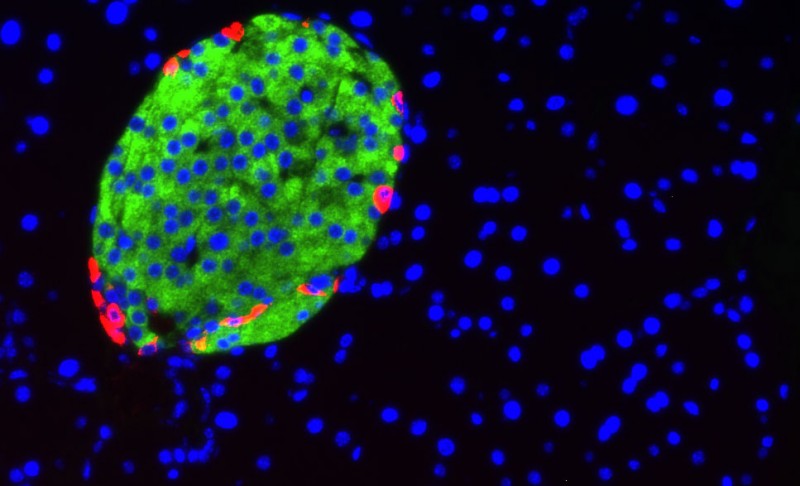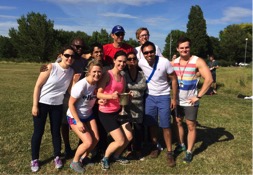
Scientists at the MRC’s Clinical Sciences Centre (CSC) in West London are the first to show that a small molecule circulates in the blood of people who are in the early stages of type 1 diabetes. A simple blood test could detect this biological marker years, maybe decades, before symptoms develop.
“If we can identify and treat patients earlier, we may be able to help them to avoid secondary complications. This could ultimately extend a patient’s life,” said Mathieu Latreille, who leads the CSC’s Cellular Identity and Metabolism research group, and who carried out the research in collaboration with scientists at the Swiss Federal Institute of Technology. Latreille presented the results to doctors at Hammersmith Hospital this month.
Further interesting findings came from a CSC study which has shown that a gene, called Jarid2, may play a wider role than previously thought in co-ordinating the way that stem cells change in a developing embryo to form the specialised cells that make up our bodies.
Scientists know already that Jarid2 is important in organising the healthy formation of many organs, including the neural tubes that become the brain and spinal cord, the liver, spleen, thymus and cardiovascular system. But its central role very early on in embryo development is “surprising”, according to professor Amanda Fisher, director of the CSC, and head of the Institute of Clinical Science at Imperial College London, whose team published its findings in Cell Reports on July 16.
Also this month, in our series of scientific seminars, Simon Andrews of the Babraham Institute in Cambridge, warned CSC scientists that experiments to sequence human genes can, and do, go wrong. Rapid advances in technology mean scientists can now sequence entire human genomes in a matter of hours, and for less than £1000. But Andrews explained that even the latest technology doesn’t stop scientists from making mistakes. “I’m showing you some of the ugly sides of sequencing experiments,” he said.

Another seminar in the series saw James Ware, who works with the CSC’s Cardiovascular Magnetic Resonance Imaging and Genetics research group, update researchers on the latest in his quest to understand the genetics of dilated cardiomyopathy, a heart condition which affects 1 in 250 people and can lead to sudden death.
Outside of the lab, CSC scientists and staff competed in the Institute’s annual rounders tournament, a relaxing interlude from serious science. Defending champions team ‘Mansfield’ came out on top.
Find out more about the latest news, events and activities at the CSC: http://csc.mrc.ac.uk/news/.